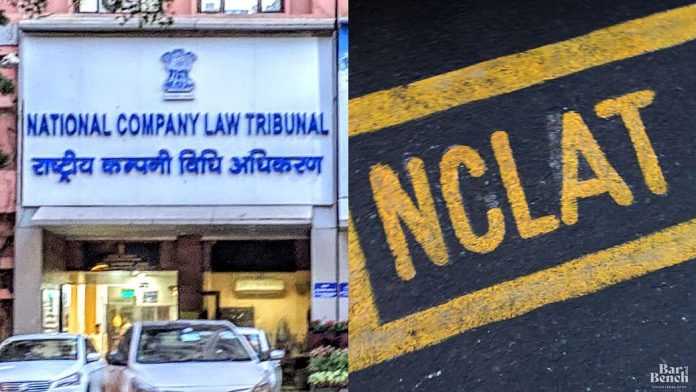This article has been written by Pragya Bajpai, pursuing the Certificate Course in National Company Law Tribunal (NCLT) Litigation from LawSikho. This article has been edited by Aatima Bhatia (Associate, LawSikho) and Dipshi Swara (Senior Associate, LawSikho).
Table of Contents
Introduction
The Hon’ble National Company Law Appellate Tribunal (NCLAT) has held that the purchaser of a property in an auction sale for the assets of the corporate debtor under Insolvency and Bankruptcy Code, 2016 (“IBC” or “Code”) shall not be required to remit 1% TDS deducted from sale consideration to the Income Tax Department (“ITD”) under Section 194 IA of the Income Tax Act, 1961 (“IT Act”). The Hon’ble tribunal also observed that the liquidator is not liable to file the income tax return of a corporate debtor under the Code; which is a precursor to claiming a refund of TDS.
The NCLAT made the above judgment in the matter of Om Prakash Agarwal v. Chief Commissioner of Income Tax Company Appeal (AT) (Insolvency) vide order dated 08.02.2021, where it primarily dealt with the interplay between the provisions of the IT Act and the IBC while deciding the overriding effect of Section 238 of the IBC in a situation of inconsistency between Section 194 IA of the IT Act and Section 53 (1)(e) of the Code.
Whether the deduction of TDS under Section 194-IA of the IT Act is inconsistent with Section 53 of the Code?
Brief background of the case
In the present case, during the liquidation proceedings of the corporate debtor, the buyer i.e. UPL Limited (“Respondent 2”) in an auction held for sale of assets of the corporate debtor deducted 1% TDS from the sales consideration of 43 Crores. Mr. Om Prakash Agarwal (“the Appellate” or “the Liquidator”) filed an appeal against the impugned order dated 11.06.2020 whereunder the Adjudicating Authority i.e. The National Company Law Tribunal (“NCLT” or “AA”) dismissed the Appellate Liquidator’s application requiring direction from the authority against Respondent 2 and Chief Commissioner of Income Tax (“Respondent 1” or “Income Tax Department” or “ITD”) to not deduct 1% TDS from the sales consideration on grounds that the deduction of TDS under Section 194 IA of the Income Tax Act, 1961 was inconsistent with the provision of recovery of income tax dues under Section 53(1)(e) of the Insolvency and Bankruptcy Code, 2016 (“IBC” or “Code”) and that Section 238 of the Code shall have an overriding effect on the other enactments which are inconsistent with the Code.
NCLT’s decision
The NCLT dismissed the liquidator’s application and made the following observation:
- Section 238 does not create an overriding effect in cases of TDS deduction
- Firstly, that there is no provision that exempts the buyer from deducting TDS from sales consideration payable to the seller.
- Secondly, that the deduction of TDS under Section 194-IA of the IT Act is not inconsistent with the waterfall mechanism of recovery of claims mentioned under Section 53 of the Code considering deduction of tax under Section 194-IA of the IT Act does not tantamount to payment of government dues in priority of creditors because it is not a tax demand for realisation of tax dues and that it is the duty of the purchaser to credit TDS to the Income Tax Department.
Appeal before NCLAT
Aggrieved by the above order of the Tribunal, the liquidator appealed before the NCLAT to set aside the impugned order on the following grounds:
- Disbursement of government dues is covered under Section 53 (1)(e) of the Code, therefore prior deduction of TDS by the buyer of the property runs inconsistently with the waterfall mechanism given under Section 53 of the Code.
- The Income Tax department cannot claim priority for clearance of tax dues and the same shall be done according to Section 53 of the Code, where government dues come fifth in the order of priority of creditors.
- Tax liability arising out of the sale of assets shall be distributed as per the provisions of Section 53 of the Code and that the capital gain cannot be included as a liquidation cost.
- There is no provision under the Code that requires the liquidator to file the income tax return of the corporate debtor, therefore the mode of distribution has to be in accordance with the liquidation estate.
- Filing of return of the company under liquidation is in conflict with the whole scheme of liquidation given under the Code. Subsequently, the liquidator cannot seek a refund of TDS as argued by respondent 1 because the same cannot be done without filing the income tax return, which again, is not a duty of the liquidator under the Code.
Submissions made by the respondent
- Section 247 of the Code r/w the Third Schedule of Code has amended the IT Act and the amendment is only subject to Section 178 of the IT Act and no amendment has been made to Section 194-IA of the IT Act. Further, he also submits that exemption from deducting TDS in accordance with the provisions of the IT Act would be tantamount to amending the provisions of the IT Act.
- The company under liquidation is not outside the scope of Section 139 of the IT Act, therefore the liquidator can file the income tax return.
- Moreover, the liquidator is a principal officer within the meaning of Section 2(35) of the IT Act and by virtue of the same, he can file and verify the return of the company.
- There is no conflict between Section 194 IA of the IT Act and Section 53 of the Code since they are different in their scope and intent. Section 194 IA of the IT Act is a fiscal provision and Section 53 of the Code provides the waterfall mechanism for determining the priority of stakeholders for the distribution of assets of the corporate debtor.
- Liquidation courts cannot perform the functions of income tax officers.
- Lastly, that TDS is not a tax demand but a duty of the purchaser to credit TDS to the Income Tax Department.
Issue raised
- Does Section 194IA of the Income Tax Act, 1961 override the waterfall mechanism and non-obstante clause under Section 53 of IBC?
Summary of Tribunal’s observation
The NCLAT while deciding the inconsistency between Section 194 IA of the IT Act and Section 53(1)(e) of the Code made the following observations:
A necessary amendment has been made under Sub-Section (6) of Section 178 of the IT Act to give effect to the scheme of the Code
Section 178 of the IT Act provides that the liquidator of a company on being notified by the Income Tax Officer shall set aside the amount that is sufficient to provide for any tax liability, payable by the company and also that the liquidator shall not part away with any asset of the company until he sets aside such amount. In case the Liquidator fails to do so, he shall be personally liable to pay the tax.
The tribunal observed the Supreme Court judgment wherein the Court considered the provisions of Section 178 of the IT Act when dealing with preferential payment under Section 530 of the erstwhile Companies Act, 1956. The SC held that the Income Tax Department is to be treated as a secured creditor and shall get priority in payment of dues during liquidation proceedings. However, under Section 53 (1)(e) of the Code, the income tax dues are payable fifth in order of priority.
Keeping in mind the inconsistency in the order of priority between Section 178 of the IT Act and Section 53 (1) (e) of the income tax dues and also the non-obstante nature of the mentioned clauses, an amendment was made to sub-section (6) of Section 178 of the IT Act, which now states that the provisions of Section 178 shall have effect notwithstanding anything to the contrary contained in any other law for the time being in force, except the provisions of the Code.
There is an inconsistency between Section 194 IA of the IT Act and Section 53 (1) (e) of the Code
Further to check the inconsistency between Section 53 of the Code and Section 194 IA of the IT Act, the tribunal considered a conjoint reading of Section 194 IA, 199, and 45 of the IT Act and concluded that the TDS under Section 194 IA is advance capital gain tax recovered through the transferee on behalf of the transferor of the immovable property where the sale consideration is more than 50 lakhs. The tribunal held that there is an inconsistency between Section 194 IA of the IT Act where TDS is recovered on priority and Section 53 (1)(e) of the Code where government dues come fifth in order of priority; therefore by application of Section 238 of the Code, Section 53 (1) (e) of the Code shall have an overriding effect on the provisions of the Section 194 IA of the IT Act. Also, Section 53 being a non-obstante provision will be subject to the overriding effect of the Code over Section 194 IA of the IT Act which does not start with a non-obstante clause.
The liquidator of a company is not required to file income tax return and therefore in return cannot claim a refund of TDS
Herein, the tribunal clarified the contention of respondent 1 that the liquidator being a principal officer can verify the return of the company and in return can claim the refund of the TDS.
Section 140 of the IT Act provides that the return of the company being wound up will be verified by the Liquidator referred to in sub-section (1) of Section 178 of the IT Act. The tribunal clarifies that the provision requires the Liquidator to verify the return but does not require him to file the Income Tax return of the company. Also, there is no provision under the Insolvency and Bankruptcy Board of India (Liquidation Process) Regulations, 2016 (IBBI Regulations) of the Code that assigns any duty to the Liquidator to maintain the financial statements of the company, therefore there is no question claiming refund of TDS under Section 194 IA of the IT Act.
Claiming a refund from the Income Tax Department is a long drawn process, therefore, it is in conflict with the time-bound scheme of the IBC
A bare reading of Section 237, 239, and 245 of the IT Act reflect that claiming a refund is a cumbersome process, therefore, there is no mention of the same under the Code or the IBBI Regulations considering the Code requires a time-bound period for completion of the corporate insolvency resolution process and the liquidation process.
- TDS does not mean raising demand for collection of tax by the Department
NCLAT overruled the NCLT’s judgment wherein it was held by the NCLT that it is the duty of the purchaser to credit TDS to the Income Tax Department and not a tax demand by the Income Tax Department for the realisation of dues.
NCLAT held that the TDS under Section 194 IA of the IT Act is an advance capital gain tax recovered through transferee on priority with other creditors of the company and because such recovery of dues is inconsistent with the waterfall mechanism of the Code; therefore by effect of Section 238 of the Code, the waterfall mechanism shall have an overriding effect over the provision of the IT Act.
Conclusion
In conclusion, the NCLAT has set aside the impugned order of the NCLT and has made directions to the Income Tax Department to refund the TDS deposited by the purchaser to the liquidator.
The NCLAT has clarified the jurisprudence around the interplay of the provisions between the 194 IA of IT Act and Section 53 (1) (e) of the Code in the context of deduction of TDS. While making the observation of apparent inconsistency in the order of priority of payment of TDS under the two sections; the appellate tribunal by virtue of the overriding effect of Section 238 of the Code has rightly held that the TDS, being an advance capital gain tax will be recovered in priority of creditors as stipulated under the waterfall mechanism of the Code wherein the government dues are ranked fifth in priority of creditors.
References
- Om Prakash Agarwal v. Chief Commissioner of Income Tax Company Appeal (AT) (Insolvency) No. 624 of 2020. Available here: https://nclat.nic.in/Useradmin/upload/155180032160212e9286f98.pdf
- Insolvency and Bankruptcy Code, 2016.
- Income Tax Act, 1961.
Students of LawSikho courses regularly produce writing assignments and work on practical exercises as a part of their coursework and develop themselves in real-life practical skills.
LawSikho has created a telegram group for exchanging legal knowledge, referrals, and various opportunities. You can click on this link and join:
https://t.me/joinchat/J_0YrBa4IBSHdpuTfQO_sA
Follow us on Instagram and subscribe to our YouTube channel for more amazing legal content.
 Serato DJ Crack 2025Serato DJ PRO Crack
Serato DJ Crack 2025Serato DJ PRO Crack











 Allow notifications
Allow notifications


